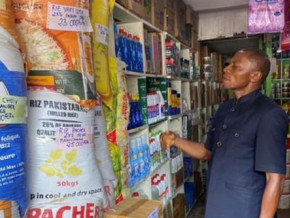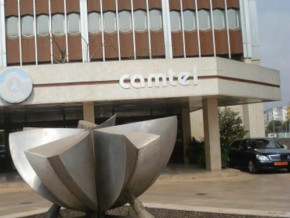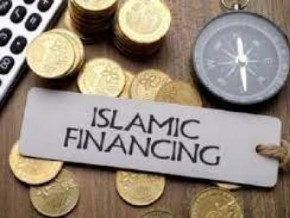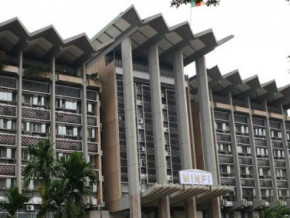
Babissakana: “The Cameroonian government must focus on appropriately using credit rating”
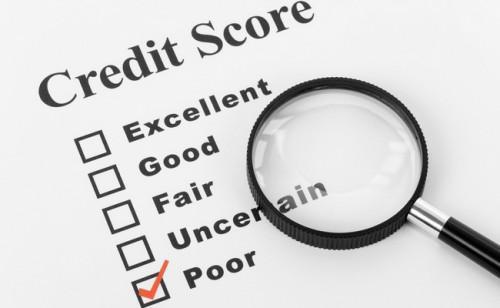
(Business in Cameroon) - Reviewing Cameroon’s economic activity in 2016 with finance expert, founder and CEO of consulting firm Prescriptor.
Business in Cameroon: One of the major highlights of the 2016 year for Cameroon’s economy is the introduction of interim economic partnership agreements (EPA) with the European Union (EU). What do you think of these agreements and what opportunities do they offer Cameroon in the short, mid and long term?
Babissakana : First, an EPA or interim partnership agreement is a free-trade agreement between Central Africa and the European Union, which was signed and ratified by Cameroon. It’s a legal instrument for long-term commercial cooperation, which brings about opportunities, but negative impacts as well, for Cameroon.
The purpose of such an agreement or instrument should be normally, as part of the national economic strategy, to boost Cameroon’s net exports (exports minus imports) to the European Union, in order to support the growth of the economy and generate jobs in the country.
Studies on the impact and viability of APEs, taking in consideration the two parties’ productive structures, suggest that Cameroon’s imports from the European Union should increase more rapidly and significantly than exports in the years to come. This would translate into a negative growth of net exports from Cameroon to the European Union, and many other issues for our economy. Any other related aspect of the agreement brings about opportunities, but threats also, for the Cameroonian economy. I would also like to mention that the negative trend which I talked about earlier can hardly be reversed.
The EPA in its actual form, signed and ratified by Cameroon alone, is a threat to regional integration in Central Africa. Moreover, the CEMAC customs union is the main contributor of positive net exports in Cameroon’s external trade.
During the “Investing in Cameroon, a land of opportunities” economic conference held in May 2016 in Yaoundé, the Cameroonian businessman Paul Kammogne Fokam asked for an EPA to be signed with Nigeria instead of the EU. Why did he, according to you, go for this option?
In regards to the national economic strategy, a free-trade agreement with Nigeria would have more positive impacts, and produce results opposite to those of the EPA with the European Union. The main principle of an economic strategy is to specialize instruments according to their comparative advantages. For example, a trade policy should mainly focus on achieving a commercial goal.
In this regard, a free-trade agreement to boost net exports (exports minus imports) to Nigeria is much likely to profit Cameroon. Looking at the two countries’ productive structures, Cameroon’s net exports could very well increase, thus support economic growth and create employment. All these justify the position of Paul Kammogne Fokam.
In 2016, the IMF kept criticizing Cameroon’s debt policy, while the National Public Debt Committee said that the country’s debt in July was 27.3% of its GDP, for an allowed standard of 70% in the CEMAC. Considering this, is Cameroon really exposed to overindebtedness as the World Bank says?
From a financial aspect, the risk for Cameroon to get over-indebted is very low. As for the recommendations of the IMF and World Bank, I believe them not be value-added creative for the government. I also firmly believe that the IMF, especially, can hardly provide viable solutions for the transformation of the Cameroonian and other African economies. So, little thought should be given to the institution’s recommendations on loans taken to transform economic structures in African countries.
The responsibility of the Cameroonian government is to provide the nation adequate infrastructures for a rapid industrial growth. Taking loans to do so is not so bad. For optimal financial engineering, loans will certainly have a lever effect on the funds invested by the State itself. However, for investment projects to be well-managed, modern technologies have to be integrated into project management.
I would say the real challenge here is the ability of the State and the private sector to master these technologies. A proper management would result in shorter delays and investment cycles, controlling the content, features and quality of projects, as well as considerably reduce construction costs and optimize the profits and impact of the infrastructures once they are operational.
In its assessment report on public debt in March 2016, the CAA said more than 70% of Cameroon’s external public debt comes with an interest rate that ranges between 2% and 3%. It added that from March 2015 to March 2016 for example, Cameroon paid FCFA81 billion in interests on its debt. According to you, why did Cameroon over the past few years has opted for concessional loans instead of the non-concessional ones?
As the State’s needs for financing keep growing, the government can obviously not rely only on concessional loans or financing, which are anyway too limited in terms of available offer. It must consider non-concessional or commercial loans in both the local and international capital markets, which are more opened. This option taken by Cameroon was even recognized by multilateral lenders, as its status was improved and it was declared eligible by the commercial branches of the World Bank and the AfDB.
Do you consider this strategic choice more beneficial for Cameroon ?
This is the only viable strategic choice in the long term. International funding to modern, and developing nations especially, should be directed to access to private capital markets. Statistically, more than 95% of international financing to developing economies comes from the private capital market, against 5% only from the public capital market (bilateral and multilateral financing, concessional and non-concessional).
For Cameroon to gradually and successfully access the private capital markets, accelerate its economic and social development, it must establish and adopt a growth model that is based on industry, science and technology. This means ignoring the approach of the IMF and World Bank that focuses on reducing poverty, and includes no real industrial policy.
To get a treasury that is attractive and which has a credible financial reputation that will insure a lasting access to local and international capital markets, the Cameroonian government must focus on appropriately using credit rating. Progress in the State’s management and the results of its public policies must be reflected in this rating.
The government made the good choice since 2003 when it decided to be rated by Standard & Poor’s, Fitch Ratings and more recently, by Moody’s Investors Service. Now it seems vital to switch to the globalization of financial rating in the State’s financial management process and the economy’s financing policies also.
The 2013 law to promote private investment in Cameroon already gave rise to more than 70 signed conventions between the State and firms, representing close to one trillion CFA francs of announced investments. What do you think of this law which IMF’s chief, Christine Lagarde, seems to have criticized when she was in Cameroon last January ?
Given that it boosts the access to various sectors of activities to investors, this law brings about a real issue, in regards to industrial policy. Signing many investment agreements to boost the country’s performances might seem very good but the issue is that the assessment of actual achievements and more importantly, the implementation of adequate measures when expectations, in terms of performances, are not met, seem not to be guaranteed. This gives way to manipulations and waste of public resources granted to private operators.
Among the beneficiaries of the law, there are so far not only small enterprises but also multinational companies that already generate significant revenues and who do not really need such State support to reinvest. Wouldn’t it be preferable to better target beneficiaries?
The specific incentives system defined in the 2002-004 law of April 2002 on investment in the Cameroon Republic uses sectoral differentiation as base for strategic and instrumental targeting which is necessary to have a credible industrial policy. The investment incentives law does not respect this criterion. Since the law entered into force, opportunistic economic actors have used it to get advantages, even in sectors or for companies which do not really need the State’s incentives.
Power deficit has always been presented as one of the major barriers to the development of businesses in Cameroon. However, this year, the Lom Pangar dam was filled and in June 2017, that of Memvé’élé, which has a capacity of 200 MW, should start producing. There is also the 400 MW Natchigal dam for whose construction will begin in 2017. Could we, in sight of all these, say that Cameroon is getting out of the dark?
Cameroon’s power deficit is significant and it grows year after year. It is true that, considering the hydropower projects you mentioned, Cameroon is on the right path to reducing its deficit, but it is still far from erasing it. The government must massively invest to expand power production capacities. That should be its priority. In order to accelerate its industrialization, Cameroon immediately needs to achieve a minimal capacity of 4000 to 5000 MW, by 2020
At a press conference held in Yaoundé during the Festicacao 2015, the Minister of Trade, Luc Magloire Mbarga Atanga, said: “cocoa is Cameroon’s best bet”. Considering the recent fall in the price of oil, which is Cameroon’s main export product, do you share his opinion?
The comparative economic advantage of Cameroon’s cocoa was impelled by the colonizers who forcefully introduced the crop’s farming. Cocoa farming since then has become a key contributor in the creation of added value each year in the country. The issue, however, is that while the sector remains under-industrialized, it is controlled and shared by foreign industrials.
This year, Cameroon has launched a national plan to revive its coffee-cocoa sector. In this framework, it eyes a cocoa output of 600,000 metric tons by 2020. Given that over the past five years, average production was 210,000 Mt, is this goal still achievable, not forgetting that we are three years from the set deadline?
In regards to the global economic strategy, I wonder if it is pertinent to set a production target of 600,000 tons by 2020, especially without formally industrializing. What is done with the currently produced 210,000 tons ? I think this strategy does not integrate in any manner economic transformation. Before improving the quality of Cameroon’s production units, industrialization must be put as top priority and all other strategies must be subordinated.
Still in the framework of increasing cocoa output by 2020, the government plans to locally process half of the 600,000 tons it targets. With this in mind, would you change your opinion ?
This target is as unrealistic as the previous one looking at how low Cameroon’s actual processing capacity is. This target seems to have been set by default. You would notice that it is not the industrial strategy that determined the structure of the strategy to boost cocoa production. Truth is, the conception and adoption processes for Cameroon’s industrialization master plan is still ongoing.
According to you, which buttons should be pushed to achieve this goal, win this bet, even if the initial deadline has to be passed by a few years?
What you call a bet, I do not think it to be one. In an economy, it is not necessary to focus solely on boosting the production of a primary agricultural commodity. The main concern should rather be to control this commodity’s value, by having a credible positioning in its entire value chain. This is a question which stands for Cameroon’s cocoa sector. What does the country truly control in the cocoa value chain ? How much control does it plan to gain by 2020? Answers to these questions are the real founding stones to developing an economic strategy for the cocoa sector.
Since 2012 when major projects have been launched in Cameroon, the country has been experiencing a kind of Chinese spring. What do think of the cooperation between Cameroon and China, which has become our country’s first lender?
In terms of bilateral cooperation, China is Cameroon’s first supplier, with 18% of imports in 2014, and its second customer behind Spain, with 15% of exports in the same year. Given its status of economic power and its financing media which are more flexible and less interventionist than that of other major economies, China and its lenders, are a good option for Cameroon.
However, the main issue is the government’s ability to negotiate terms related to the acquisition of technology for its projects. This ability is closely related to the quality of management of public investment projects. A good management would help better structure bilateral financing, control the content and features of projects, and reduce construction delays while boosting projects’ profitability and their impact once operational. Our recommendation is to strengthen cooperation with China, by resorting to various legal instruments that involve trade, investment, technology and financing.
Interview by Brice R. Mbodiam for Business in Cameroon magazine
Mags frontpage
- Most read 7 days
- shared 1 month
- read 1 month

























